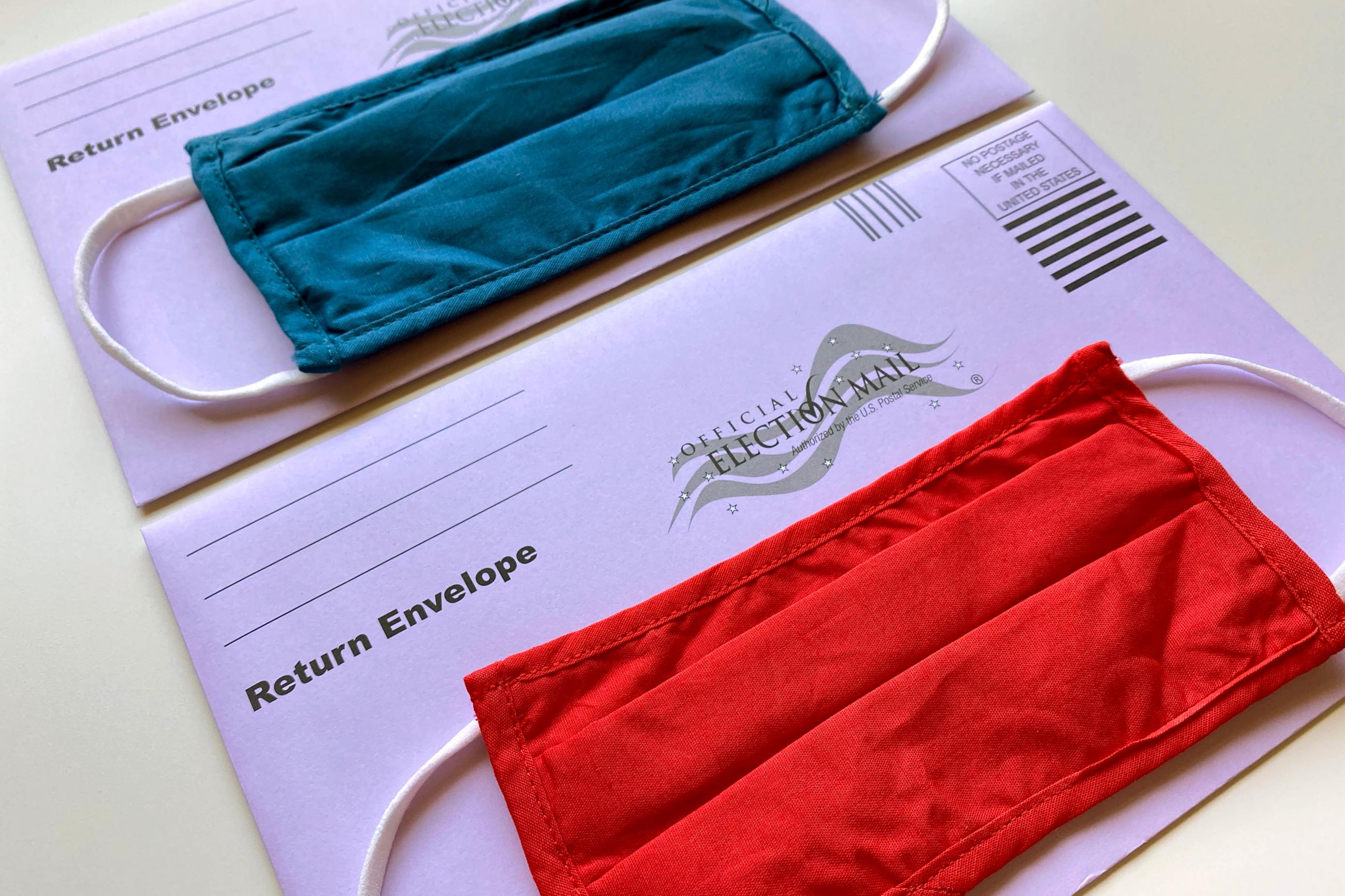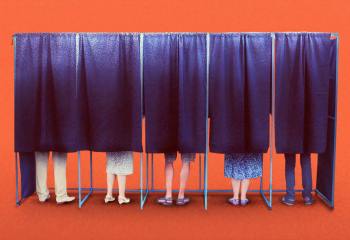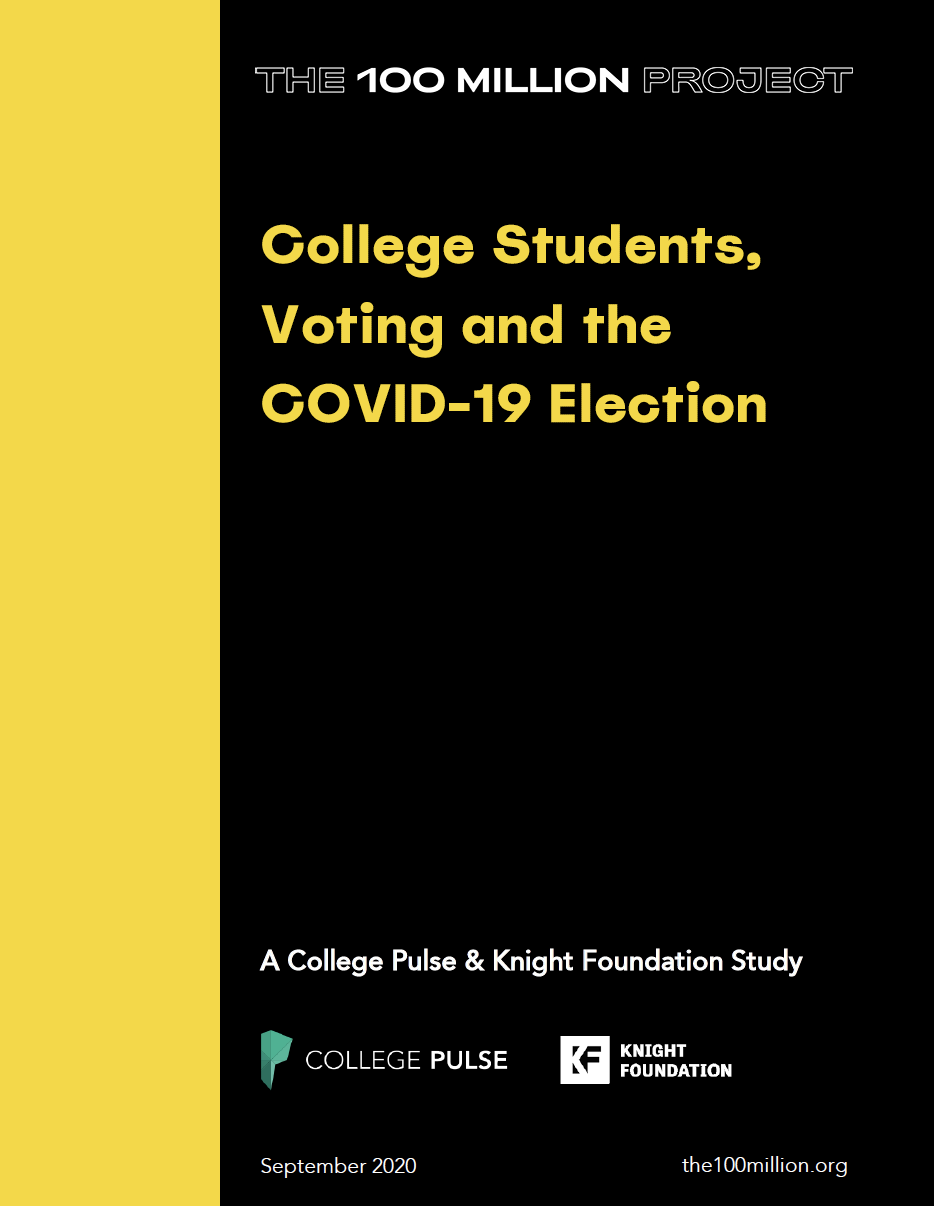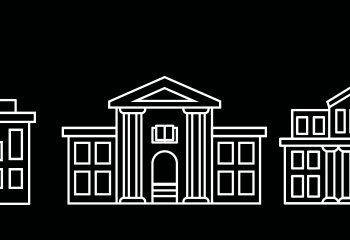College students demonstrated some of the most dramatic surges in voter turnout for the 2018 midterm election of any voter group, prompting high expectations for their presence at the polls in 2020.
Earlier this year, the John S. and James L. Knight Foundation released the 100 Million Project, a landmark study that surveyed 12,000 persistent nonvoters in order to explore the underlying challenges of electoral participation. Alarming findings showed the emerging electorate— 18-to-24-year-old eligible citizens, many of whom were registered or had voted before—were far less interested in voting for president in 2020 even than chronic non-voters. Young people also had the least interest in politics, felt the least informed, and struggled the most with the voting process.
But this was before COVID-19 upended the college experience and created the potential for a disrupted 2020 election. It was also before the police killing of George Floyd triggered protests and a national discussion of systemic racism that sharpened partisan divides.
Knight commissioned College Pulse to undertake a national poll of college student views on voting and the 2020 election, to gage their responses to voting during these unprecedented and uncertain times. Conducted from August 9 to 12, 2020, findings from “College Students, Voting and the COVID-19 Election” represent a sample of 4,000 full-time students currently enrolled in four-year degree programs surveyed via the College Pulse mobile app and web portal, and weighted to be nationally representative.
Key takeaways include:
- Most students—led by college women and Democrats—say they are “absolutely certain” they will vote this year. About seven in 10 (71%) students say they are absolutely certain they will vote in the upcoming election, with female students expressing greater certainty than their male counterparts by a margin of 10 points. Students who identify as Democrat are the most likely to be absolutely certain they will vote (81%), followed by Republicans (74%) and Independents (63%).
- Students lack confidence in the legitimacy of the 2020 election. Nearly half (49%) say it won’t be fair and open, and a majority (55%) say it will not be administered well. A full 81% say special interest groups have more influence over election outcomes than voters.
- Students are likely to doubt the results of the presidential election. Half say that problems at polling places such as long lines or broken voting machines would lead them to have major doubts about the fairness of the election; followed by evidence of foreign interference (48%); the election winner losing the popular vote (46%); and low voter turnout (46%) or if most voters cast ballots by mail (31%). 74% will have major or minor doubts about the fairness of the election if it takes weeks to count.
- Students plan to vote for Joe Biden by a wide margin, but enthusiasm is low for both major candidates and their parties. A full 70% say they will vote for Biden, versus only 18% for President Trump. But only 49% have a favorable impression of Biden, versus 51% unfavorable; for Trump, those numbers are 19% and 81%, respectively. When it comes to the two major parties, male college students view both about equally negatively, while female students express much more positive views of the Democratic Party.
- Just over half of college students plan to vote by mail, with large partisan splits. The majority (63%) of Democratic students say they would prefer to vote by mail or absentee, compared to 31% of Republican students. Thirty nine percent of all students plan to vote in person.
The report, “College Students, Voting and the COVID-19 Election,” details the full findings on these and other issues related to the 2020 election and political participation among the rising generation of college-educated Americans — including notable breakout data by gender, party affiliation and race. College students’ responses reveal a polarized student body that’s unified in its skepticism of the electoral system, the candidates, and the idea that the government works to improve their lives. But most of them are still largely intent on casting a ballot in 2020.
Photo (top) by Tiffany Tertipes on Unsplash




